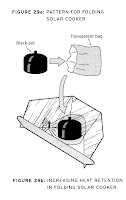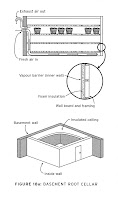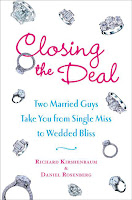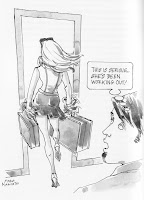Peak Oil Survival: Preparation for Life after Gridcrash by Aric McBay (The Lyons Press, 2006, ISBN 978-1-59228-127-5)
This book was written by: Aric McBay, an author, webmaster, and survivalist who expects worldwide oil reserves to be depleted in the immediate future, bringing civilization to a halt and ending the world as we know it. "I believe that this rapid collapse is probably the 'best-case scenario' for the planet.[....] I'm planning for an optimistic scenario that involves near-term, rapid industrial collapse"(p.xx). Mr. McBay writes that because of his misgivings about technology's effects on the environment, "these concerns led me to search for the deeper roots of our current problems, and for deeper solutions, which I eventually found in a critique of civilization"(p.xvii). Mr. McBay does not identify himself as a communist, but "the techniques chosen [for this book] tend to make societies more egalitarian and to distribute resources and power more fairly"(p.xxi).
What is in this book: Descriptions of ways you can eke out a living in the blighted wasteland of deprivation that is a world without oil. Chapters cover finding and sterilizing water, cooling and cooking food, latrines, and lighting and heat. Mr. McBay tries to put a brave face on things, claiming that for some of these survival methods "their use is creative and fulfilling, rather than repetitive"(p.xxi), and "we could even thrive in the face of industrial collapse"(p.84). However, you'll still be spending three hours trying to cook lentils in a haybox (p.58), going to bed when the sun sets because "compared to modern paraffin (petroleum-derived) candles, tallow candles smell bad, sputter and drip, produce sooty smoke, don't burn for very long, and melt easily at a low temperature"(p.79), and scavenging for nutrients in your own poop. "Many soils have already been mined of nutrients, and they can benefit from the nutrients present in feces. Besides, for many people during industrial collapse, the only source of animal manure for gardening may be their own"(p.33). What is not in this book: Information on hunting, survival medicine, or good substitutes for some of the currently available necessities that will become scarce in a post-petroleum world. Interestingly enough, while Mr. McBay states in the introduction that "a technique that allows a 1,000-square-foot garden to meet food needs would generally be preferred to a 1,500-square-foot garden that yields the same amount of food, since the smaller garden leaves more room for wilderness"(p.xxi), the book does not discuss gardening techniques in any detail.
What is not in this book: Information on hunting, survival medicine, or good substitutes for some of the currently available necessities that will become scarce in a post-petroleum world. Interestingly enough, while Mr. McBay states in the introduction that "a technique that allows a 1,000-square-foot garden to meet food needs would generally be preferred to a 1,500-square-foot garden that yields the same amount of food, since the smaller garden leaves more room for wilderness"(p.xxi), the book does not discuss gardening techniques in any detail.
Mr. McBay has also neglected to provide instructions for building the weaponry you'll need to raid other survivors for their now priceless, petroleum-based, and life-giving plastics. For example, you can use them to store water, and "large, plastic barrels, such as ones used to import pickles for restaurants, are a good option"(p.26). Plastic can also collect water if you dig a hole and "place a clear plastic sheet over the hole with a weight, such as a stone, in the middle and additional weighting along the edges of the hole. The water that evaporates out of the soil will condense and drip into the container"(p.12). And you can use plastic for cooking with solar heat. "If you place a black pot in a clear plastic bag […] you will have better heat retention"(p.67). Mr. McBay cautions that burning plastic is dangerous and bad for the environment, but not until after he suggests that "melting shopping bags with a flame will yield an improvised hot glue or makeshift caulking"(p.87).
Mr. McBay guides readers to websites for additional survival information, which manages to save paper and reduce the book's impact on the environment while still keeping the information readily accessible after the oil apocalypse.
Notably absent from either the book or the websites is a good list of positions to choose from when you finally decide to curl up and die.
Would you recommend this book to Alfred E. Neuman? Yes. Because we're doomed, and there's nothing to be done about it. "The problems we face are not superficial. They are not caused by the kind of car you or I drive, by whether we buy recycled paper or not, by which politician we vote for, or where we work. [...] We can't solve the problems we face by simply changing those personal choices"(p.xv), so why bother? "We can't all spend as much time as we'd like camping in the forest, growing gardens, taking wilderness first-aid classes, or learning other survival skills to prepare for the collapse"(p.xix), but it doesn't matter because "to be completely self-sufficient would be very difficult, time-consuming, improbable, and generally lonely"(p.84). What, me worry?
Would you recommend this book to that pretentious college student who thinks that half a semester of Intro to Philosophy has made him a deep thinker? Yes. Mr. McBay has provided that guy with some superb examples of the existential paradoxes that plague modern man:
"We are left in something of a catch-22. We know that in a post-collapse context, our well-being will depend on the well-being of the natural world, since we will once again be directly dependent on the ecological communities in our area. Most of us are currently dependent on industrial civilization for the material basis of our day-to-day lives. And yet, in the long term, every day that industrial civilization continues is another day that global warming worsens, that more rivers are dammed, depleted, or poisoned, that more fish are removed from the oceans, and that more forests are cut down."(p.xvii)
It's like a Catch-22, Morton's Fork, and Hobson's Choice all rolled into one giant grab bag of misapplied terminology!
 What was interesting about this book? Taking a dump after the end of civilization is a complicated proposition, and for good reason. "Assume that one person will excrete about 1.4 cubic feet (.04m3) of solids per year"(p.31) Fortunately, Mr. McBay offers advice and instructions for convenient, sanitary latrines that can be used by the whole family. And "if small children are afraid of falling into the hole, you can make a covering for the hole, with a smaller hole within it, or simply make a second, appropriately sized hole in the floor"(p.31). If you find the idea of a child-swallowing crap hole to be even more terrifying than gridcrash, you have the option of using a composting toilet. Some people report problems with urine in their composting toilets causing unpleasant smells , but "most people I know who use composting toilets simply add their urine (diluted with at least 3 to 6 parts of water) to their garden or orchard"(p.35, parentheses in source). Just don't ask what you can substitute for toilet paper.
What was interesting about this book? Taking a dump after the end of civilization is a complicated proposition, and for good reason. "Assume that one person will excrete about 1.4 cubic feet (.04m3) of solids per year"(p.31) Fortunately, Mr. McBay offers advice and instructions for convenient, sanitary latrines that can be used by the whole family. And "if small children are afraid of falling into the hole, you can make a covering for the hole, with a smaller hole within it, or simply make a second, appropriately sized hole in the floor"(p.31). If you find the idea of a child-swallowing crap hole to be even more terrifying than gridcrash, you have the option of using a composting toilet. Some people report problems with urine in their composting toilets causing unpleasant smells , but "most people I know who use composting toilets simply add their urine (diluted with at least 3 to 6 parts of water) to their garden or orchard"(p.35, parentheses in source). Just don't ask what you can substitute for toilet paper.








